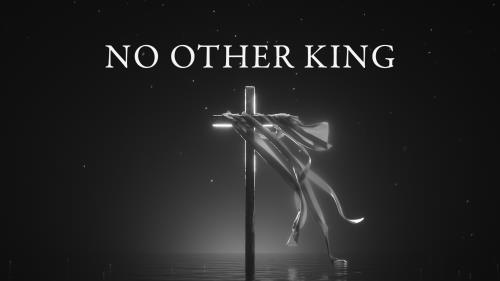-
An Overview Of The Person And Work Of The Lord Jesus Christ
Contributed by Donald Whitchard on Sep 28, 2021 (message contributor)
Summary: Our study in basic biblical doctrine continues as we devote our attention to the Supreme Subject of each book of the New Testament and the fulfillment of the promises of God written in the Old Testament, none other than the Lord Jesus Christ, our Great God, King, and Savior
Christianity is the life of the Son of God made living in man. Jesus Christ is the Supreme Subject of each New Testament book and the fulfillment of every promise and prophecy of God proclaimed in the Old Testament. He existed before all creation and came into creation to live as one of us, showing that He is and will always be the King of Kings and Lord of Lords for all time, the victor over death, hell, and the grave. Throughout the entirety of the New Testament, His disciples and those who wrote the Gospels, letters, and histories that tell of His life and work declared without compromise or apology that Jesus Christ was and is both God and man. His Divine nature was presented in passages such as Matthew 14:33, 28:18-20; Mark 2:5-11; John 1:1-4, 17:5, 20:28-31; Acts 4:12; Colossians 1:16, and Hebrews 1:8. Scripture also testifies that Jesus was human, with normal parents (Matthew 2:11; Luke 1:26-38), although Matthew and Luke point out that Joseph was the foster father of Jesus and that God was His true Father. He was subject to the infirmities of human nature, yet was without sin. He got hungry, thirsty, tired, and showed deep emotion such as tears over the death of His friend Lazarus, and underwent times of temptation (Matthew 4:2; John 4:6, 11:35, 19:28; Hebrews 4:15). It was John, the last apostle, who wrote of this dual nature of Jesus Christ as a defense against the heretical teachings that were growing at the end of the first century which denied either Jesus' Divinity or humanity (1 John 1:1-10). Other passages showing Jesus' humanity include Genesis 3:15; Matthew 24:45; Mark 6:3; Luke 3:28; John 7:1-5; Galatians 4:4; 1 Timothy 2:5, and Hebrews 2:9-18.
A core teaching of the Scriptures and an essential truth concerning the Lord Jesus centers on His conception and birth. As the Perfect Sacrifice for our sins, He had to be born without a sin nature that originated and spread down through history from Adam (Romans 3:10-18, 5:12-21). The Savior had to be born without the input of an earthly father and the natural procreative process. Jesus was the product of the Divine intervention of God the Holy Spirit and the willing servant of the Lord, a virgin girl named Mary (Genesis 3:15; Isaiah 7:14; Matthew 1:18-25; Luke 1:26-38), the "Seed of the woman" that had been prophesied by God Himself after the fall of Adam and Eve into sin. God's promise of redemption was given to them and to all people who seek reconciliation with Him. God gave His only begotten Son (John 3:16) so that we do not have to suffer in sins and bear the unpayable price we cannot bear in our fallen condition. None of this would be a reality if Jesus had been born as everyone else, a man conceived in sin, unable to pay for His own sins, much less our own.
The Virgin conception and birth identifies the Lord Jesus as the Promised Messiah, a miracle that validated His message of redemption and carried on by His apostles and all who believe upon Him. It is only as God in the flesh that Jesus could be our perfect sacrifice for sin (Luke 1:35). The Virgin conception is a portrait of the role we play in salvation, which is NOTHING. Joseph had no hand in the process, and he was accepting of his part to rear the Son of God as his own. Mary was passive, accepting God's gift (Ephesians 2:8-9). Neither holiness nor salvation can be brought about by our own self-efforts, plans, ideas, or ideals. Anyone rejecting the Virgin conception ends up rejecting the Divine nature of the Lord Jesus, the idea of salvation in general, and renders the Christian faith and the entirety of Scripture as unnecessary, irrelevant, and non-essential, and the story of Jesus would have been forgotten to history.
The centerpiece of the New Testament is the death and resurrection of Jesus Christ, and is recorded more than 120 times. Representative passages include Isaiah 53:12; John11:23-24; Romans 5:6-11, 14:9; 1 Corinthians 15:1-8; 2 Corinthians 3:15; Colossians 1:22; Hebrews 2:9, and Revelation 5:9. Jesus death was vicarious (Matthew 20:28). He was our substitute, taking our place upon the cross (2 Corinthians 5:2). He was made sin for the sinner. By faith in Him, the sinner is made righteous by the righteousness of God. His death was natural, with His spirit separating from His body (John 19:31-37), but was also unnatural in that since He was sinless (1 Peter 2:22; 1 John 3:5), knowing no sin, doing no sin, and having no sin, before He could die like a man, He had to be "sin for us" and therefore, He died an unnatural death. God in the flesh DIED - FOR US. What love can we ever hope to imitate in that fashion? Jesus' death was the product of the foreknowledge of God Almighty, and was no accident or unforeseen tragedy on Jesus' part (1 Corinthians 2:7-9). God's plan of salvation was in place before the whole of creation was ever formed. Jesus' death was supernatural (John 10:17-18). He laid His life down on HIS TERMS and raised Himself up again on the third day as He promised (John 2:19). Only God in human form could do this act of compassion, sacrifice, and confirm the success of His redemptive mission by coming back to life (Matthew 28:1-20; Mark 16:1-20; Luke 24:1-49; John 20, 21).

 Sermon Central
Sermon Central



